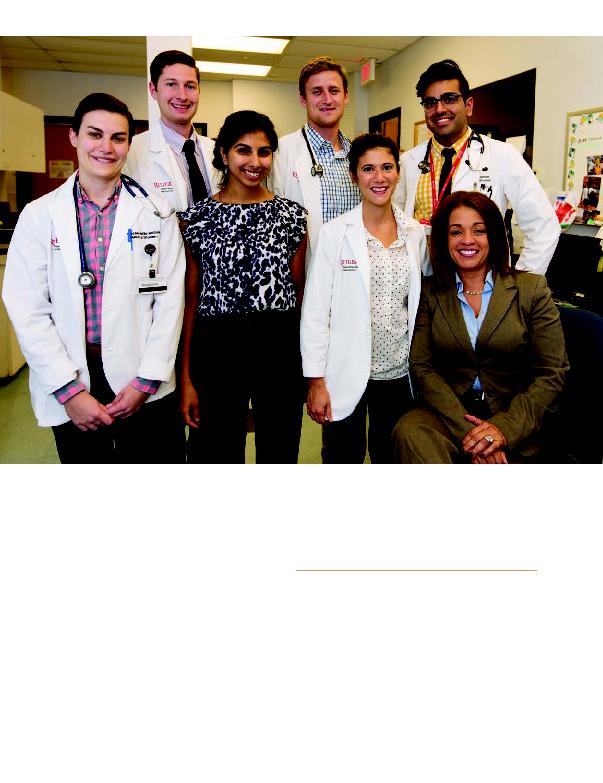
ue twice a week. The staff encourages those with abnormal
blood pressure to make an appointment with a student
team. By doing so, they hope to persuade appropriate
clients to become involved with the clinic. Trust and
respect for the student doctors have grown among clients,
says Ms. Giordano. "Gradually, they have come to recog-
nize the students as their health care resource."
patients, they are given an initial screening and diagnosis;
then, once assigned, they begin receiving ongoing care based
ments include a physical exam and assessment; lab work;
evaluation of vaccinations, medications, and compliance;
medical school's psychiatry residency program provide on-
site support for clients with mental health issues.
of the steering committee. A student-run pharmacy team
helps patients obtain prescriptions. The laboratory team
runs simple on-site tests or blood draws, working with tech-
needed. Many student clinicians receive elective credit
toward their medical degree.
clients," says Susan Giordano, HIPHOP program coordinator (seat-
ed), with student doctors (back row, left to right) Alex Pronko,
Andrew Butler, Sanjay Jumani, who is also a manager, (front row, left
to right) Rachel Deberardinis, Ila Nimgaonkar, who also serves as a
scheduler, and Eleni Stavrou.